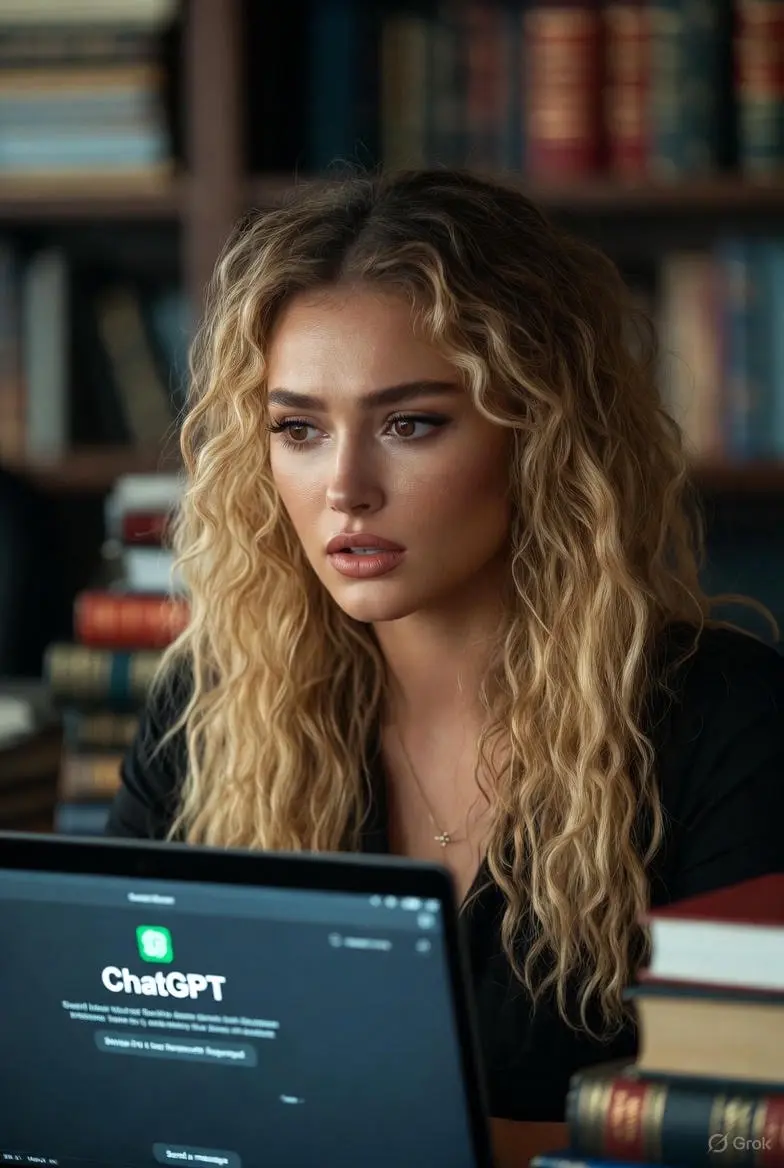By
Gigabit Systems
November 11, 2025
•
20 min read

Kim Kardashian Says ChatGPT Made Her Fail Law Exams
When AI Confidence Meets Real-World Consequences
In a recent Vanity Fair interview, Kim Kardashian revealed that her reliance on ChatGPT for law exam prep backfired — spectacularly. The reality star, who earned her law degree earlier this year, admitted that OpenAI’s chatbot “kept giving wrong answers,” leading her to fail several legal exams before passing.
💻 The AI Study Partner That Failed the Test
Kardashian explained that she used ChatGPT to help with her bar studies, even taking photos of questions and asking the bot to explain the answers.
“They’re always wrong,” she said, laughing. “I failed multiple tests because I trusted ChatGPT.”
In the same conversation, she joked that the chatbot tried to be motivational — replying, “This is just teaching you to trust your instincts.” Kardashian said she scolded the bot after realizing that “encouraging” tone came with incorrect information.
⚖️ Why ChatGPT Struggles With Law
Experts note that generative AI tools like ChatGPT don’t actually understand legal material — or any subject matter. They use pattern prediction to generate text that sounds correct, without verifying factual accuracy.
This means while ChatGPT can explain legal concepts conversationally, it can’t reliably interpret complex statutes or case law. In high-stakes fields like law, that’s a critical flaw.
AI’s tendency to produce “hallucinations” — confident but false answers — has already misled lawyers, students, and even judges. Earlier this year, multiple U.S. attorneys were sanctioned for submitting fake case citations generated by ChatGPT.
🎬 Pop Culture Meets AI Hype
The revelation came during Vanity Fair’s lie detector interview with actress Teyana Taylor, while both stars promoted their Hulu legal drama All’s Fair. Critics widely panned the show, giving it an 18/100 on Metacritic — though Kardashian’s comments on AI quickly stole the spotlight.
Her experience reflects a growing reality: even public figures and business leaders are falling into AI’s confidence trap — mistaking fluent language for real intelligence.
🧠 Why It Matters
Kardashian’s story underscores a crucial point about trust and technology: AI can imitate expertise but not replace it. As tools like ChatGPT become fixtures in classrooms, offices, and even courtrooms, users must remember its limitations.
AI can inspire and assist — but when it comes to law, medicine, or education, accuracy and accountability still belong to humans.